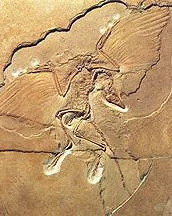
Application is now open for Ocean and Earth Science’s new MRes in Vertebrate Palaeontology.
This new one-year course offers you the chance to study the evolution and anatomy of vertebrates at the world-renowned National Oceanography Centre Southampton.
An exciting science combining geology, anatomy, genetics, embryology and ecology, vertebrate palaeontology investigates fossil from the last 500+ million years in order to inform and increase our understanding of the workings of modern day creatures.
Students enrolling on this programme will join an active research group at the University of Southampton, National Oceanography Centre Southampton, who contribute to world-leading studies on dinosaurs, pterosaurs, fossil birds and ancient marine reptiles, amongst other groups.
Dr Gareth Dyke, Programme Leader, says “The University of Southampton offers the perfect location for the study of vertebrate palaeontology – we are close to several sites of global importance including the Isle of Wight and the Jurassic Coast World Heritage Site of Devon and Dorset, which provide fantastic opportunities for fieldwork.”
Designed for graduates of sciences including biology, geology, zoology and environmental science, the new programme is based around the completion of a 10-month fossil-based research project, supported by formal teaching and modules from a range of disciplines across the University.
Gareth adds “We collaborate closely with Southampton’s Biological Sciences and Aeronautics and Astronautics academic groups – these links are scientifically exciting and challenging and are enabling us to push forward the study of vertebrate palaeontology in new and diverse ways. Students enrolled on our MRes course will have the opportunity to embrace this multidisciplinary element throughout their studies and experience cross-discipline research, which is becoming increasingly important for modern science.”